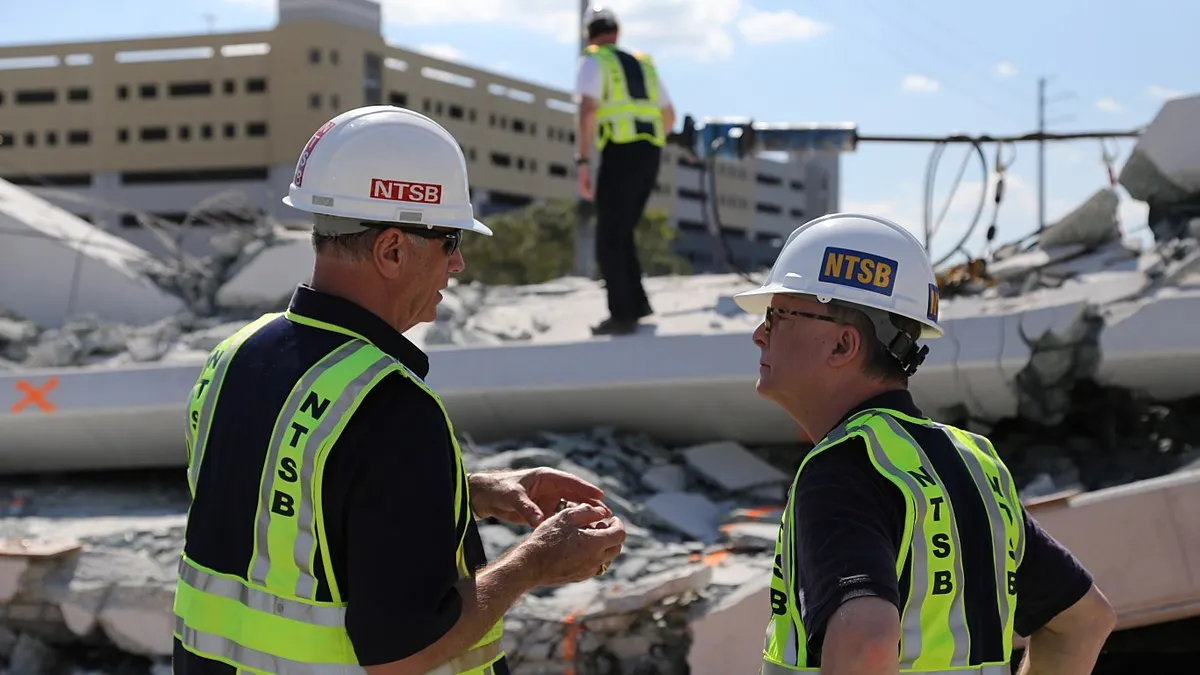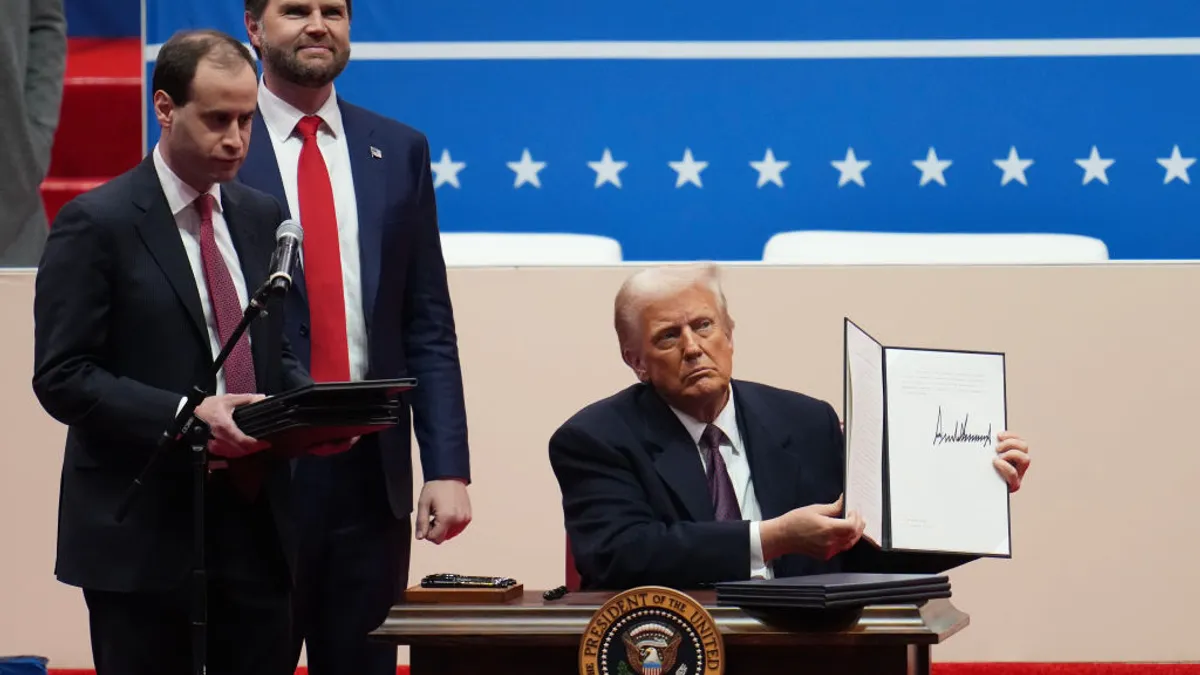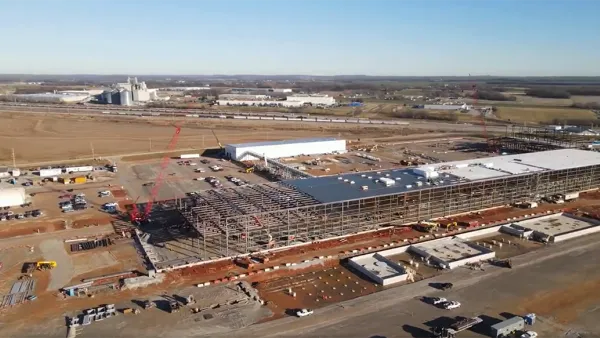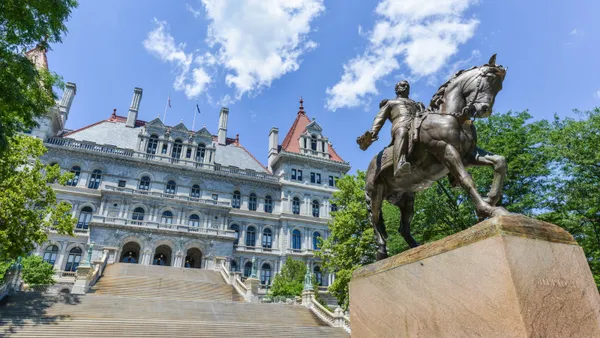UPDATE: Aug. 18, 2020: A federal judge denied FIGG Bridge Engineers' and engineer William "Denney" Pate's request to lift the suspension imposed on them by the Federal Highway Administration (FHWA). FIGG was involved in the deadly March 2018 Florida International University bridge collapse, and for its role, the FHWA has proposed a 10-year debarment.
In her Aug. 17 opinion, U.S. District Judge Colleen Kollar-Kotelly found that neither FIGG nor Pate demonstrated that they would have a likelihood of success against the FHWA based on the merits of their claims. She also said they did not prove that they would suffer irreparable harm as a result of the suspension or make the case that lifting the suspension was in the public interest.
Kollar-Kotelly also referenced the nearly $1 billion Houston Ship Channel Bridge project, determining that the Harris County Commissioners Court had reasons independent of the FHWA suspension such as design errors to terminate FIGG's contract.
As for FIGG's and Pate's futures, Kollar-Kotelly said in her opinion that:
- The potential economic losses they predicted are speculative.
- The effect of the suspension on FIGG's current contracts is unclear.
- The firm has already suffered reputational harm independent of the suspension after the Florida International University bridge collapse.
- The National Transportation Safety Board's determination that the FIU bridge collapse's probable cause was related to load and capacity calculation errors made by FIGG.
Dive Brief:
- FIGG Bridge Engineers Inc. and FIGG engineer William “Denney” Pate, have sued the Federal Highway Administration (FHWA), asking a U.S. District Court judge to lift the agency's suspension of their eligibility to participate in federally funded projects pending debarment proceedings. Supposedly driven by FIGG's role in the deadly March 2018 Florida International University (FIU) bridge collapse, as determined by the National Transportation Safety Board, the FHWA has proposed a 10-year debarment.
- In its application for a temporary restraining order (TRO) and preliminary injunction against the FHWA, the plaintiffs argued that the suspension could cause them irreversible "catastrophic and imminent harm" to the degree that, while waiting for the debarment process to run its course, the company could go out of business and Pate might not be able to find other work.
- Not directly related to the FHWA lawsuit, the Harris County (Texas) Commissioners Court yesterday voted to terminate FIGG's design services contract on the $1 billion Ship Channel Bridge in Houston, a contract that represents “almost half of FIGG's revenue," according to the TRO application.
Dive Insight:
FIGG's suit against the FHWA also takes aim at its investigation of FIGG's role in the FIU case thus far. The agency, FIGG and Pate argued, could have justified a suspension months ago if it truly felt there was an "immediate need" to protect public safety.
The application also said that the FHWA has not engaged in its own fact-finding into the collapse, has relied on third-party reports, ignored technical evidence presented by FIGG’s independent experts and targeted FIGG out of the more than 40 companies working on the FIU project, even though the firm was not responsible for site safety, construction or inspections.
FIGG also called the proposed 10-year debarment, which the engineering firm said would be an adequate remedy without the suspension, "draconian" since it was "such a departure" from the federal guidelines of three years.
As for the NTSB's report, it did find fault with how several other companies working on the FIU project ignored cracks on the bridge before it finally collapsed but placed the bulk of the blame on FIGG's design. After the NTSB released its findings, FIGG offered a different reason for the accident based on an independent analysis by its consultant, Wiss, Janney, Elstner Associates (WJE). After testing full-scale replicas, FIGG said that WJE determined that the cause of the collapse was the failure to roughen the concrete beneath bridge member 11, the point of collapse. That task was not FIGG's responsibility.
The court has scheduled a teleconference today with FIGG and the FHWA.
Given the facts of the case, a suit for injunctive relief on the suspension makes sense, said attorney Brian Wood with Smith, Currie & Hancock LLP in Washington, D.C.
"While FIGG’s counsel addresses the underlying dispute as to the cause of the bridge failure," he said, "the motion focuses on the question of whether immediate action was necessary."
Based on the assertions and arguments FIGG made in its motion, Wood said, the FHWA should have to explain and justify why it waited so long to issue the suspension after determining the failure was caused solely by FIGG. The agency will also have to provide an explanation why it awarded projects in which FIGG played a role — either at the federal or state level — after the FIU failure.
Wood said that although courts usually give federal agencies deference in decisions of suspensions and debarments, FIGG could overcome that challenge by showing that the FHWA did not satisfy the "immediate action prong/element" for suspensions.
Even if FIGG is granted the TRO, however, that's only part of the battle.
"It is possible that FIGG could prevail on enjoining the suspension and still lose on the ultimate debarment," he said.












